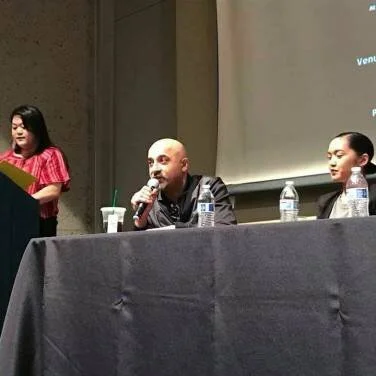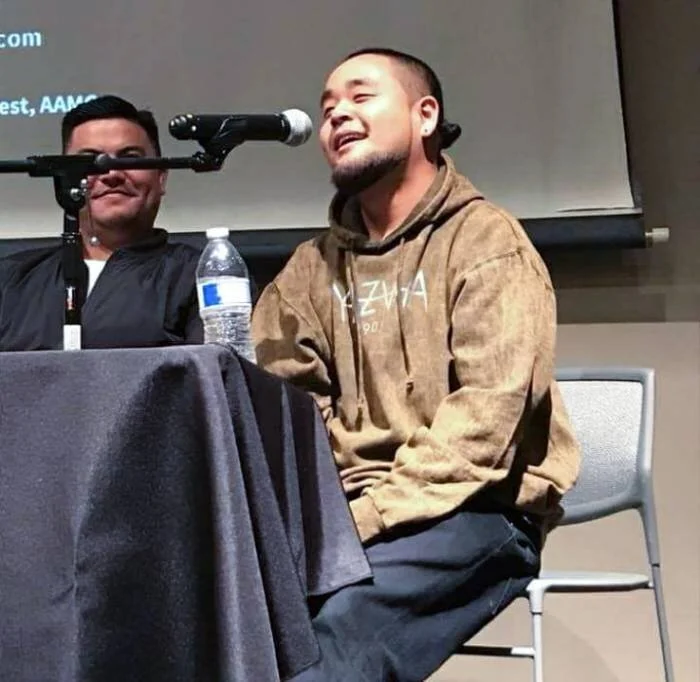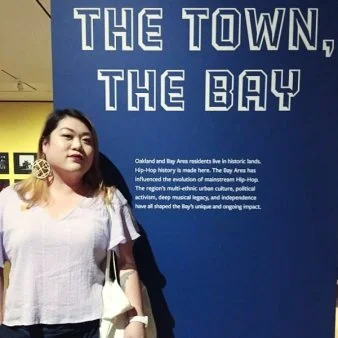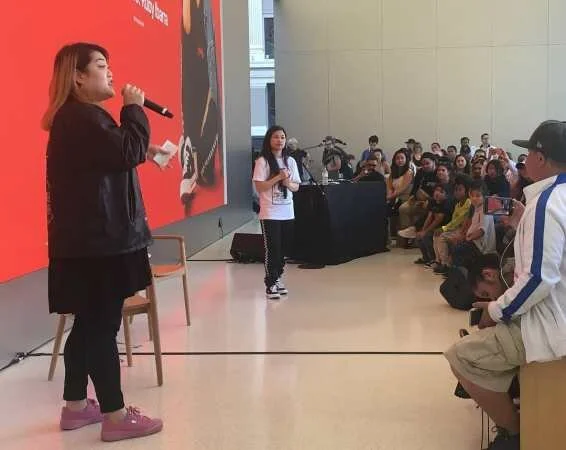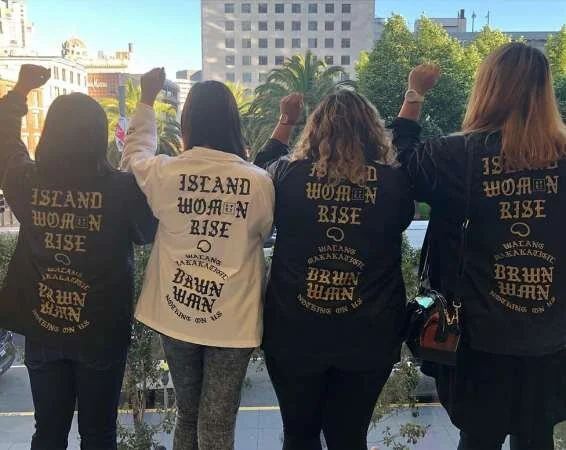2018 in Honest Review: Successes, Sexism, and Imposter Syndrome
When I started up this blog, I was terrified to share my opinion, because I deeply understood how insignificant my opinion could be, and how little weight it would hold, as an Asian American woman writer in Hip Hop. In a recent video post for Hip Hop x Asian America, I shared my incredulous response to Missy Elliot’s track, “Can You Hear Me,” from her fourth studio album, in which she addresses critique that she wasn’t Hip Hop enough... If an artist of Missy Elliot’s caliber and creativity and impact and legend ‘isn’t Hip Hop enough’ by the time she dropped “Gossip Folks,” then by comparison, I’m nothing more than pocket lint in the realm of Hip Hop. It would be easy to give up before trying.
But I’m reminded that that’s not what Hip Hop or Asian America is about; it’s about creating something from nothing, about whether folks believe Asian Americans belong in Hip Hop or not, and about how we survive by carving out a space for ourselves— because we’re already here, and I’m about telling the stories of my community, making it heard, and making it relevant.
The fear of sharing my opinion comes with each and every single essay and blog post, because I’m writing from the point of view of audience, listener, critic, fan, community member, and researcher. My work is multidisciplinary, and because it’s difficult to categorize, it’s hard to measure in comparison to other people’s work, but perhaps that’s the best part. I look up to writers like Jeff Chang and Oliver Wang who not only document, but dissect the impact and significance of Hip Hop, race, and culture. And more so than just reposting music, I want to root music in the context that it deserves— because I have yet to see other Hip Hop blogs set up an album review with a specific Asian American lens, and our artists deserve to be written about in a way that honors their identities, stories and the stories that shape the artist’s narrative. While it feels like other blogs feature Asian American rappers and “female rappers” as a niche highlight, here, you are the main spotlight. Additionally, while I wholeheartedly believe in dropping “femcee” and “female rapper/emcee” in reference to women emcees, I’m hyper aware of the gender balance in representation within my posts, so as to continue challenging the status quo of the marginalization of women in Hip Hop— myself included.
2018 was a seed year, and was more prosperous than I could’ve imagined. There is a thirst for conversations about Asian Americans in Hip Hop, and a demand for space to thrive. I thought my highlight would begin and end when I dropped my first short essay, “Friscopinos & the Native Immigrant” in January, which became published in April, in an anthology of works by San Francisco area writers and artists. But following this, I had an amazing opportunity to moderate a panel of Asian Americans in Hip Hop for CAAMFest 36 at the Oakland Museum, in tandem with the RESPECT: Hip Hop Style and Wisdom exhibit, thanks to the amazing folks at Asian American Music Conference. Thirty-six hours later, I was interviewing Lex the Lexicon Artist, Chow Mane, Rudy Kalma, and Ruby Ibarra at 2:00 AM, in the back of a bar, on sticky vinyl booth seats, with a wasted man slurring and crying all over my audio.
It became less of anxiety from fear of wondering whether people liked my work, or whether people thought I was Hip Hop enough, and became more about the stories I set out to share. While my community showed love and support, it was the readers’ responses to the material that really touched me: “this was a great read” was heart warming, and feedback like, “we need more stories like this,” and “this work is important,” really got my fire burning. My writing comes from an Asian American lens, to which I hope Asian Americans can relate, but ultimately I hope that everyone can enjoy it. My bottom line has always been to offer this work as my contributions to Asian America and to Hip Hop— as another layer, facet, and addition to both Asian American and Hip Hop history and culture.
RESPECT: Hip-Hop Style & Wisdom exhibit at the Oakland Museum of California
Part of our history includes the ongoing struggle against displacement and gentrification, and I also had a few great opportunities to talk about the history of Manilatown and current efforts for affordable housing on the Kuya Chris podcast as well as the cross-country Space to Place podcast. After years of discussing gentrification from a housing lens, I saw a pattern in its role in reshaping our culture of physical space for dancers. As I conducted my month-long interviews with 7 different bboys and bgirls about their personal attachments to physical space and their perception of displacement, we also uncovered gaps in involvement of the bboy community in city politics. While the essay has taken me on a few turns, I’m excited to share the results and ideas of the participants, as they paint a greater picture of an interconnected Bay Area from the bboy lens within the hip hop community.
Following another amazing opportunity to moderate Q&A for the incredible Ruby Ibarra at Apple Union Square, I was approached by Bitch Talk Podcast, and during our recording, I shared that I used to do weekly picks of music on Twitter, but it never caught on. The hosts offered their encouragement, and within two weeks, I launched SOUNDBITES. Throughout the year, while I’ve remained mostly solo as a writer, my speaking engagements have come from other women who wanted to plug or amplify my work.
There is a part of me that deeply knows the stark difference between working with different groups of men throughout the years—struggling to find my place within the shared accomplishments, not getting credited or acknowledged, getting squeezed out of conversations— and then working with women throughout 2018, who opened door after door for me, and were clear about collaborative goals, centering their ideas, and communicating openly. I say this to be honest, and it’s not that I don’t wish to work with men, but I’m exhausted from all the -isms that come from men in Hip Hop and the extended community. Having been emotionally abused for a majority of my life because of toxic masculinity, and only now undoing the damage in my late 20s, I cannot and will not be featuring or working with any artists who have a history of perpetuating assault or abuse in this work, that I do out of love. Period. I earnestly hope that when and if a new partnership or collaboration is on the horizon, with anyone, that we can operate on a mutual understanding of professionalism, clarity, and a similar belief in justice and community.
On that note, for 2019, my only goals are to continue what I’ve started, uphold my boundaries, and to keep letting go of fear, in any way that I can, in any increment possible.
Thank you for an incredible year. Thank you to all the amazing artists for sharing your work with the world, and special thanks to my readers and community for the opportunities, your feedback, participation, and love.
